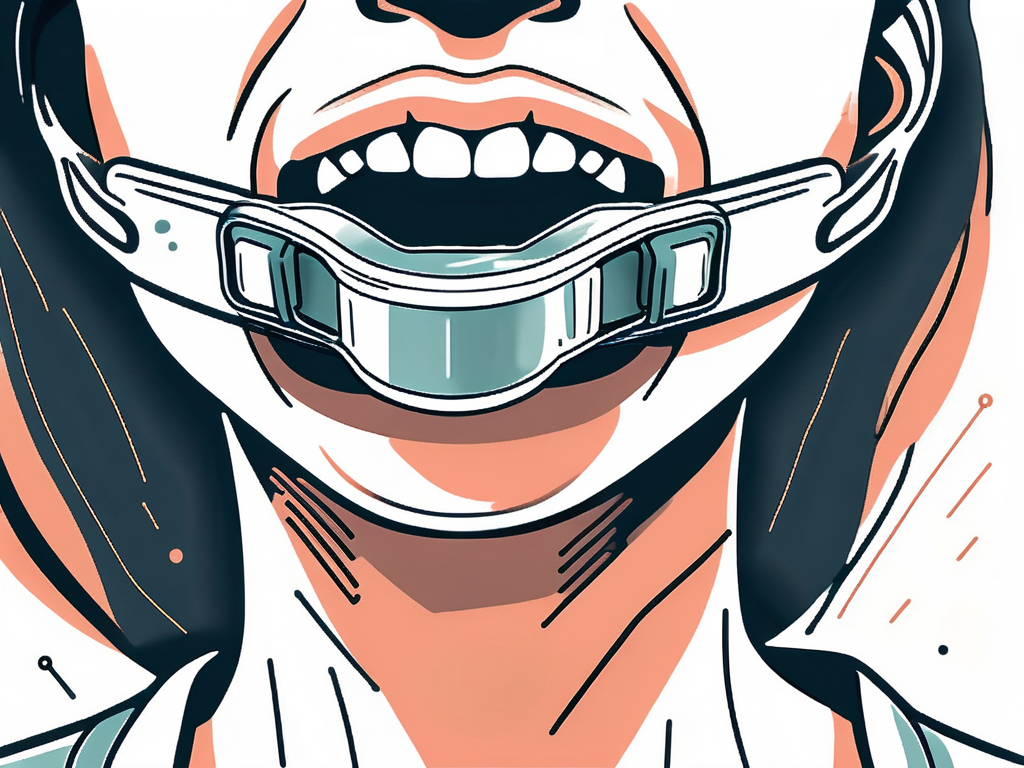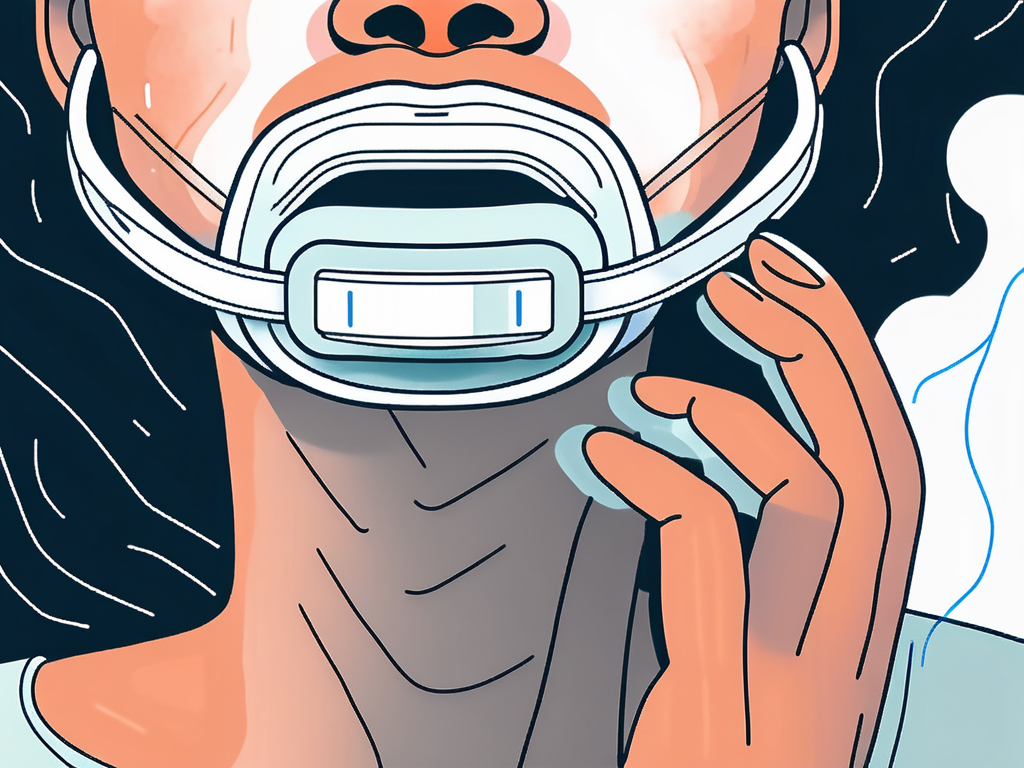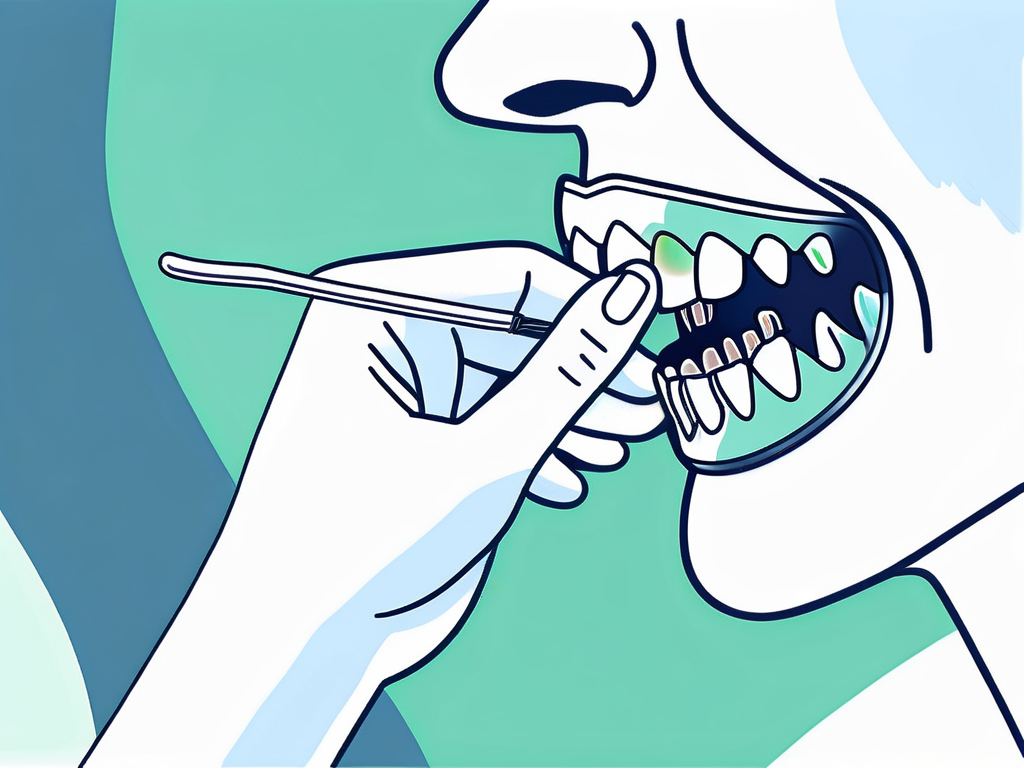Sleep apnea is a common sleep disorder that affects millions of people worldwide. It is characterized by breathing interruptions during sleep, which can have a significant impact on overall health and well-being. While there are various treatment options available, one potential solution reported by some people with sleep apnea is the use of a mouth guard. In this article, we will explore the science behind sleep apnea, the role of mouth guards in treating this condition, the mechanism of mouth guards, and the benefits and drawbacks of using them.
Understanding Sleep Apnea
The Science Behind Sleep Apnea
Before we delve into the role of mouth guards in treating sleep apnea, it is essential to understand the science behind this sleep disorder. Sleep apnea occurs when the muscles at the back of the throat relax during sleep, causing the airway to narrow or close completely. This obstruction leads to breathing pauses, known as apneas, which can last for a few seconds to several minutes.
As a result, individuals with sleep apnea experience fragmented sleep patterns, leading to daytime fatigue, poor concentration, and other related health issues. It is crucial to address this condition to improve the quality of life and overall health.
Furthermore, the two main types of sleep apnea are obstructive sleep apnea (OSA) and central sleep apnea. OSA, the more common form, occurs when the throat muscles relax and block the airway. On the other hand, central sleep apnea occurs when the brain fails to send proper signals to the muscles that control breathing. Understanding the type of sleep apnea is crucial in determining the most effective treatment approach.
Common Symptoms of Sleep Apnea
In addition to the disrupted sleep patterns, sleep apnea manifests through various symptoms. Some common signs include loud snoring, gasping or choking during sleep, morning headaches, dry mouth or sore throat upon waking, irritability, and difficulty staying asleep. If left untreated, sleep apnea can lead to severe health problems such as high blood pressure, heart disease, and stroke.
Moreover, individuals with sleep apnea may also experience nocturia, which is the frequent need to urinate during the night, as well as memory problems and decreased libido. These symptoms can significantly impact daily life and overall well-being, emphasizing the importance of early diagnosis and intervention.
The Role of Mouth Guards in Treating Sleep Apnea
Types of Mouth Guards for Sleep Apnea
Mouth guards, also known as oral appliances or mandibular advancement devices, are consider by some people with sleep apnea to be a non-invasive treatment option for their symptoms. There are several types of mouth guards available, but the most common ones are mandibular advancement devices and tongue retaining devices. Mandibular advancement devices work by repositioning the lower jaw slightly forward, which helps to keep the airway open. Tongue retaining devices, on the other hand, hold the tongue in place to prevent it from blocking the airway.
It is important to consult with a healthcare professional to determine the most suitable mouth guard for individual needs and comfort as sleep apnea is a serious medical condition.
How Mouth Guards Alleviate Sleep Apnea Symptoms
Some mouth guards designed for sleep apnea work by shifting the position of the tongue and jaw to prevent the collapse of the airway during sleep. By keeping the airway open, they allow for a continuous flow of air and eliminate breathing pauses. This promotes uninterrupted breathing and reduces the occurrence of apneas, resulting in improved sleep quality and overall well-being.
Furthermore, some mouth guards provide a more comfortable and convenient alternative to continuous positive airway pressure (CPAP) machines, which are often the primary treatment for sleep apnea. Many individuals find it challenging to adapt to the CPAP machines due to discomfort, noise, and portability issues. Mouth guards can offer a less restrictive and more user-friendly solution.
When it comes to mandibular advancement devices, there are different designs available to cater to individual preferences. Some devices are adjustable, allowing for personalized advancement of the lower jaw. This feature is particularly beneficial for individuals who require a higher degree of jaw advancement to effectively treat their sleep apnea. Additionally, certain mandibular advancement devices come with built-in features such as air holes or open fronts, which enhance comfort and allow for natural jaw movement during sleep.
Tongue retaining devices, on the other hand, are specifically designed to address sleep apnea cases where the tongue is the main culprit. These devices typically consist of a suction cup-like structure that holds the tongue in a forward position, preventing it from falling back and obstructing the airway. They are often recommended for individuals who have a larger tongue or a tongue that tends to relax and block the throat during sleep.
It is worth noting that while some mouth guards can be highly effective in managing sleep apnea symptoms, they may not be suitable for everyone. Individuals with severe sleep apnea or certain dental conditions may require alternative treatment options. Therefore, it is crucial to consult with a healthcare professional who specializes in sleep medicine to determine the most appropriate course of action.
The Mechanism of Mouth Guards
Design and Functionality of Mouth Guards
Generally speaking, mouth guards are custom-made devices that fit over the upper and lower teeth. They are usually made from a sturdy and non-toxic material, ensuring both durability and safety. Mouth guard design can allow for proper repositioning of the jaw and tongue, keeping the airway open and preventing obstructions during sleep. The customization process ensures a precise fit for maximum effectiveness.

It is important to note that mouth guards should only be used to treat sleep apnea under the guidance of a healthcare professional who specializes in sleep apnea treatment.
When it comes to the design of mouth guards, they are carefully crafted to not only provide comfort but also to withstand the wear and tear of nightly use. The materials used are chosen for their strength and flexibility, ensuring that the mouth guard remains intact and functional over an extended period of time. Additionally, the custom-fit nature of mouth guards means that they are tailored to the individual's unique dental structure, offering a level of comfort and security that generic mouth guards cannot match.
The Effect of Mouth Guards on Breathing Patterns
Using a mouth guard for sleep apnea has been reported by some users to significantly improve breathing patterns during sleep. By preventing the collapse of the airway, mouth guards designed for this purpose can promote consistent airflow, reducing the occurrence of apneas and ensuring sufficient oxygen supply to the body. This results in a more restful and rejuvenating sleep, leading to increased daytime energy levels and improved overall health.
Furthermore, the impact of mouth guards on breathing patterns can extend beyond just the physical benefits. By improving the quality of sleep, mouth guards can also have a positive effect on mental well-being. Adequate, uninterrupted sleep is crucial for cognitive function, mood regulation, and overall mental health. Therefore, the use of a mouth guard not only addresses the physical symptoms of sleep apnea but also contributes to a more balanced and healthy lifestyle.
Benefits and Drawbacks of Using Mouth Guards for Sleep Apnea
Advantages of Mouth Guards
One of the main advantages of using mouth guards for sleep apnea is their non-invasive nature. Unlike surgical interventions, mouth guards do not require invasive procedures, making them a less risky and more accessible treatment option. Additionally, mouth guards provide a comfortable alternative to CPAP machines, enhancing compliance and overall patient satisfaction. They are also portable, allowing individuals to maintain their sleep apnea treatment while traveling.

Potential Side Effects and Risks
Although mouth guards are generally safe and well-tolerated, some individuals may experience minor side effects initially. These can include jaw or tooth discomfort, excessive salivation, dry lips, or soreness in the oral cavity. However, these side effects usually diminish over time as the individual's body adjusts to the mouth guard. Regular follow-up appointments with a healthcare professional are essential to address any concerns and ensure optimal treatment outcomes.
Consultation and Customization Process for Mouth Guards
The Importance of Professional Consultation
When considering the use of a mouth guard for sleep apnea, it is crucial to seek professional guidance from a healthcare provider specializing in sleep disorders. A comprehensive consultation will determine the severity of sleep apnea, assess individual needs and preferences, and identify the most suitable type of mouth guard. Healthcare professionals will also educate patients on the correct usage and maintenance of mouth guards for optimal results.

The Process of Customizing a Mouth Guard
The customization process for mouth guards involves taking impressions of the upper and lower teeth to create a personalized fit. These impressions are sent to a dental laboratory where skilled technicians fabricate the mouth guard according to the specific measurements and requirements.
In conclusion, mouth guards offer an effective treatment option for sleep apnea by addressing the underlying cause of breathing interruptions during sleep. Some work by repositioning the jaw and tongue to keep the airway open, promoting uninterrupted breathing and improved sleep quality. Mouth guards provide numerous benefits, including non-invasiveness, comfort, and portability. However, it is essential to consult a healthcare professional for proper assessment, customization, and ongoing care to ensure optimal treatment outcomes. With the use of mouth guards, individuals with sleep apnea can experience significant relief and enjoy a better quality of life.













